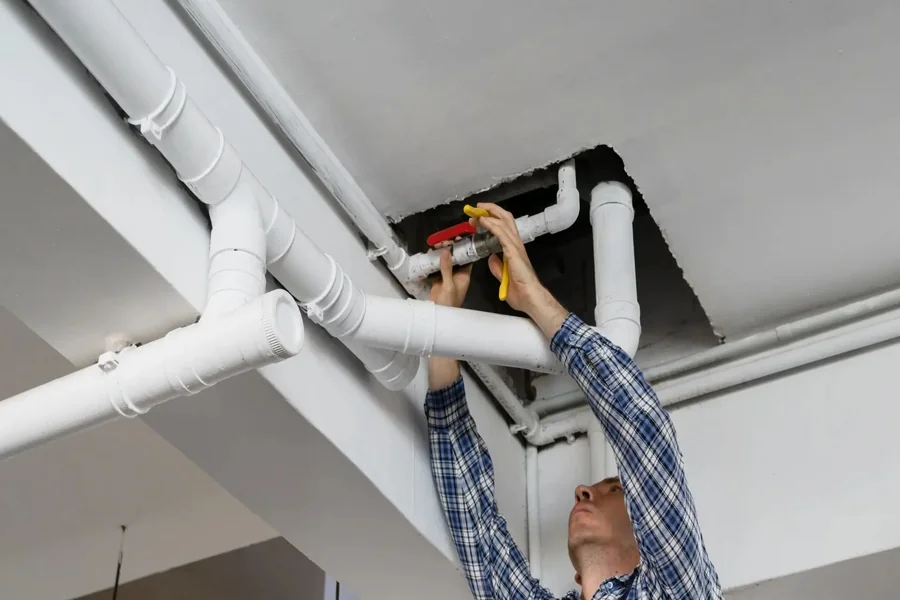A plumbing crisis can feel overwhelming for homeowners, often striking at the most inconvenient times. Whether it’s a burst pipe, a blocked drain, or a malfunctioning boiler, the potential for damage can escalate quickly. Understanding how to effectively manage the situation is crucial to minimise the impact on your property and prevent costly repairs. Here’s a guide to navigating a plumbing emergency with composure and efficiency.
Recognise the Signs of a Plumbing Emergency
Before diving into action, it’s essential to understand what constitutes a plumbing emergency. Look for these common warning signs:
- Unexplained puddles or wet patches on walls or ceilings
- Persistent leaks from faucets or pipes
- Gushing water from burst pipes
- Low water pressure or completely dry taps
- A sudden increase in your water bill
If you observe any of these indicators, it may be time to take immediate steps to alleviate the situation.
Shut Off the Water Supply
Step one in dealing with a plumbing crisis was to turn off the water supply. This serves several purposes: first and most importantly, it stops further damage from occurring. Locate your stopcock, which is typically found under the kitchen sink or near your water meter. If you’re unsure of its location, familiarising yourself with it in advance can save precious time in an emergency.
Now that you’ve shut off the stopcock, go open all your taps. This final step ensures all water will flow out of and drains hoses, has even more benefits; it reduces pressure left in the system And although not an absolute guarantee against arrears As a precaution against residual water from leaking out is to turn the tap once again.
Assess the Situation
After halting the water flow, take a moment to assess the extent of the damage. Is it a minor leak that can be managed temporarily, or is it a more severe situation that requires professional assistance? Minor leaks can often be patched up with plasters or sealants available in your local DIY store. However, for significant issues, especially involving sewage, gas, or electrical appliances, it is advisable to call in the experts. Resources such as flowise.co.uk provide valuable guidance on when to enlist professional plumbing services.
Minor Repairs
For manageable situations, a temporary fix might be all you need. Some tips for minor repairs include:
- Using Tape or Sealants: If you’ve identified a small leak, a durable plumbing tape can provide a quick temporary seal. Look for products specifically designed for plumbing repairs to ensure effectiveness.
- Bailing Out Water: If you have a flooded area, use a bucket to remove standing water. This will help to alleviate the immediate damage and make it easier to work in that area.
- Wipe Down Wet Areas: Using absorbent towels or mops can help to minimise water damage on floors and walls. The quicker you act, the less likely mould and wood rot will occur.
Call a Professional
If you cannot solve the problem by yourself, then it is necessary for you to find a qualified plumber.When you are choosing one such service call company, see that the relevant technicians come within a reasonably short period.Depending on word of mouth or online research can help to identify skilled and conscientious experts who won’t go back on their promises in times of need.
Document Everything
Although it is hard to remember details during a plumbing crisis, documenting the problem can be invaluable. There are still some things you can do to change your circumstances:
Photograph the areas affected, noting any visible harm done. The documentation will help should you need to claim insurance and could help your plumber work out which would be most appropriate.
Protect Your Belongings
While you focus on fixing the problem, don’t forget to safeguard your valuables. Move furniture, electronics, and any other items that could potentially be damaged by water. This proactive measure can minimise your losses and make the cleanup process easier once the crisis is resolved.
Prevent Future Issues
Once the immediate crisis has been addressed, consider steps to prevent future plumbing emergencies. Regular maintenance can significantly reduce the risk of unexpected problems. Here are some actions to consider:
- Insulate Pipes: In areas prone to freezing temperatures, insulate your pipes to prevent them from bursting.
- Regular Checks: Make it a habit to check all visible plumbing for leaks, corrosion, or wear and tear every few months.
- Install Water Detectors: Investing in water detection systems can alert you to leaks before they escalate into bigger issues, providing you with peace of mind.
Educate Yourself and Your Household
Teaching everyone in your home about basic plumbing systems can empower them to act quickly in emergencies. Familiarity with how to turn off the water supply, identify shut-off valves, and spot potential issues can vary between family members, but a little education can go a long way.
Know When to Replace
When old plumbing systems are failing, the best way to handle it is to replace them. Ask your plumber how long critical parts, like pipes, water heaters and fixtures will last. By using reliable materials, not only can future crises be avoided, but also in the long run it saves you money.
Conclusion
It’s understandable for people in panic to experience stress when the water pipe bursts, but it’s best that they take pre-emptive action earlier than later so as to avoid further catastrophe. If you can figure out how to turn off the water at your main shutoff, fix small breaks yourself and call on professionals when necessary, these crises will not seem so scary after all. Bear in mind though that if you are proactive in your home, bring up your children right and keep on top to maintain things, then many troubles are going to be passed over — allowing what is truly important (the all-and-make-up of one’s wellsprings) be tended best.”




